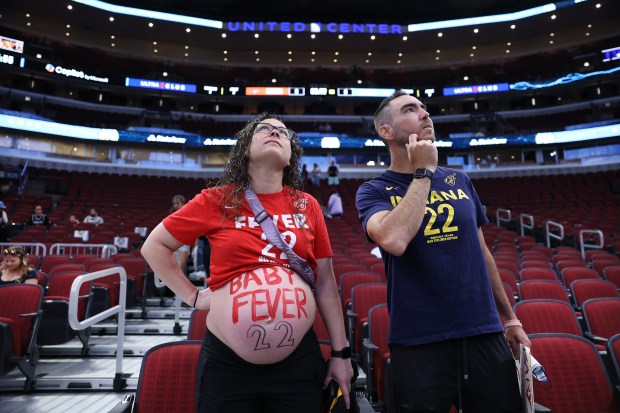Editor’s note: This is Part 1 in a three-part series from Northwestern University professor Ian Hurd and student Sadie Barlow that explores the history and geopolitics of the Olympics. Look for Part 2 on Thursday.
There’s the Olympics that you know and the Olympics you don’t. The Games and the spectacles are familiar, as are the scandals. But few people know the Swiss tax code and the web of nonprofit organizations that bring the Games into being.
The global machinery behind the Olympic Games is rich, powerful and very weird.
When the Games begin in Paris, the events on television are the conjunction of three sets of organizations. First, each sport has an international federation that sets rules and organizes competitions, and second, each country has a national Olympic committee that chooses the country’s best athletes. Holding it together is the International Olympic Committee, the strange Swiss heart of it all.
The IOC doesn’t own or control any teams or stadiums or sports leagues. It doesn’t host competitions or hire athletes. All it really owns is the intellectual property behind the Olympics as a brand including the famous five-ring logo, the Olympic anthem and the right to use the word itself for commercial purposes.
The Olympics have unmatched global brand recognition. The Games are as well known as Apple or Google, but they aren’t a company. They are a nonprofit association based in Switzerland with about 500 employees, whose principal asset is the word “Olympics.”
The word is the key. The IOC controls the word “Olympics” like Kellogg’s owns “Corn Flakes” and the MLB owns “World Series.” Anyone can organize a sports competition, but you can call it the Olympics only if you first get permission from the IOC. By carefully managing the trademark and giving permission to use it only in the most selective ways, the IOC has constructed an immensely profitable ecosystem of global sports entirely under its control.
In Paris, the athletes are chosen and brought to the Games by country-level organizations authorized by the IOC — these are the national Olympic committees, or NOCs. Each sport is organized by an international sports federation, or IFs. Both NOCs and IFs are typically incorporated as nonprofit charities.
The IOC owns the rights to broadcast the events, which it rents to media companies around the world. This is where the money comes from. Demand from advertisers is high for Olympic content, and the IOC earns about $2 billion each year from broadcast rights and corporate sponsorship.
It is remarkable that a tiny Swiss nonprofit controls a global commercial operation. The contradiction is resolved by the fine print of Swiss corporate law. As long as the IOC invests surplus income in its fundamental educational mission — to “place sport at the service of humanity and thereby to promote peace,” according to the Olympic Charter — then its commercial operations are not only lawful, but they are also tax-free.
The system works well for the IOC and for the individuals and entities that get paid from its profits. The IOC funnels millions each year to the national committees, sports federations and individuals associated with them.
But outside of the ecosystem, there are two major problems. The IOC decides for itself what counts as using sports for “peace.” This enables insider payments and self-dealing on a grand scale, justified by lofty language of universalism. In any other setting, this might be called corruption, but since it is neither a government nor a corporation, the IOC isn’t subject to that kind of scrutiny.
The second problem is that the popular mythology of world peace and universal harmony hides the very real political choices involved in running a big-money global brand. From choosing a host city to responding to war and human rights to sex segregation in sports, the IOC is intimately involved with political decisions at every step of its operations. The IOC famously embraced Adolf Hitler for the 1936 Berlin Games in the name of world peace and more recently has taken opposite positions on Russia’s invasion of Ukraine and Israel in Gaza.
The myth of political neutrality is central to the brand but hopelessly unrealistic for a billion-dollar commercial operation. The IOC controls scarce resources and decides who gets to play and who doesn’t — its decisions are inescapably political, whether it admits it or not.
As viewers, we should insist on accountability, both in money and in choices, from the tiny elite who are making all the decisions.
Ian Hurd is a professor of international politics at Northwestern University. He is the author of “International Organizations.” Sadie Barlow is an undergraduate student at Northwestern studying economics and international studies. She is working with Hurd this summer as a research fellow at the Buffett Institute for Global Affairs.
Submit a letter, of no more than 400 words, to the editor here or email letters@chicagotribune.com.




